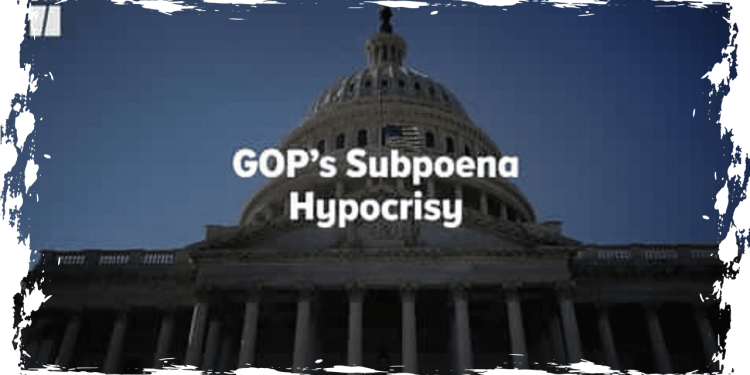On Thursday, former President Donald Trump proposed the possibility of replacing the U.S. income tax system with an alternative approach – imposing significantly higher tariffs on imported products.
In recent times, Trump has suggested a 10% hike in tariffs for all imports. However, based on his recent comments, it seems that he is considering imposing much higher trade duties that would ultimately be transferred to consumers. President Joe Biden’s campaign was quick to criticize this move, stating that it would harm American families.
During his first visit to the Capitol campus since the Jan. 6, 2021 insurrection, Trump was reported to have discussed the idea in a spontaneous and enthusiastic “pep talk” with House Republicans near the U.S. Capitol.
During the GOP meeting at the Capitol Hill Club, Rep. Thomas Massie (R-Ky.) shared a fascinating policy concept that was put forth by President Trump. According to Massie’s social media post, Trump suggested the possibility of scrapping the income tax and introducing tariffs instead. Massie’s post included an emoji face wearing a monocle for added humor.
During the meeting, Trump reportedly brought up the concept of an “all tariff policy,” according to sources cited by CNBC.
Economists have a unanimous agreement that tariffs increase the prices of consumer goods. As a result, companies end up charging more for their goods and services to compensate for the tariffs they pay. Apart from this, Trump’s proposal to impose new levies would lead to a surge in inflation overall, according to economists. With the economy growing at a rapid pace, inflation and the prices of consumer goods have already become a significant topic of discussion leading up to the 2024 election.
The U.S. government’s revenue generation is dominated by income taxes, which raised a whopping $2.2 trillion in the 2023 fiscal year. In comparison, tariffs, including the payments made towards customs duties, contributed only a small fraction of $88.3 billion. This amount is a tiny proportion of the $4.4 trillion total revenue generated by the government annually, as reported by the Treasury Department.
It appears that in order to reach income tax levels through tariff revenues, a significant increase in tariffs would be necessary, surpassing the 10% initially proposed by Trump.
In a social media post, Paul Krugman, a noted liberal columnist for The New York Times and Nobel Prize winner in economics, provided a preliminary estimate. He stated that he would need to provide a more detailed write-up but mentioned that an *average* tariff rate of 133 percent would be required.
The Trump campaign has not responded to a request for comment yet.
The Trump administration’s proposal to impose a 10% across-the-board tariff has been heavily criticized by the Biden campaign. They have highlighted the regressive nature of the idea, pointing out that tariffs could increase prices without providing any protection to poor families who already have little or no tax liabilities due to the progressive income tax code in the United States.
James Singer, spokesperson for the Biden campaign, pointed out that Trump’s billionaire donors are the only ones benefiting from this regressive and thoughtless policy. He emphasized that this comes at the expense of working-class Americans who are left to suffer.
Singer accused that while American families are facing higher costs, Trump’s wealthy donors are getting richer.
Before the introduction of income tax in 1913, tariffs were a significant source of government revenue. However, as per the Congressional Research Service, tariffs have only contributed to less than 2% of federal revenues for the past 70 years. Trump’s proposal to rely on tariffs would essentially be a return to the past.
During the meeting on Thursday, Trump hinted at the idea of praising President William McKinley. According to reports, he expressed admiration for the former President.
McKinley, who was a member of the House of Representatives prior to becoming President, gained recognition for his work on the McKinley Tariff Act of 1890. This act was responsible for increasing tariffs by almost 50% on imports.
McKinley and his fellow Republicans faced a disastrous political blowback as a result of the law. In the next election, they lost a significant 93 seats in the House.










